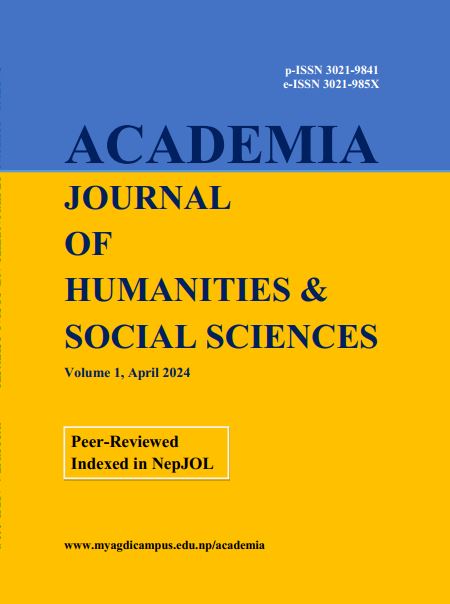Gendered Citizenship Rights: A Case Study of Women in Morang District
DOI:
https://doi.org/10.3126/ajhss.v1i1.65001Keywords:
Gendered citizenship, rural women, citizenship rights, Nepal's constituionAbstract
This paper attempts to identify the intricate factors contributing to the alienation of rural women from obtaining citizenship and the far-reaching consequences this has on their overall wellbeing and livelihood options. The study delves into the underlying causes and seeks to shed light on the multifarious challenges faced by rural women in their pursuit of citizenship rights. The study is a qualitative research, following an exploratory research approach. The study site for this research was Morang District, which is one of the southern eastern Terai districts in Koshi Province of Nepal. The study has employed an experience survey to present the lived experiences of the affected women due to lack of citizenship. Analysis of data was done to identify recurring themes and patterns among the participants’ experiences that have faced discrimination in accessing citizenship rights. The collected data were analyzed using phenomenological analysis to explore the participants’ subjective experiences, perceptions and emotions to fulfill the research objectives. The major reasons for women to lack citizenship as identified by the field study was poverty, landlessness, illiteracy, patriarchal value system, and unjust provision, which make women dependent on their male counterparts to get citizenship, inaccessibility and lack of social network and administrative complexities.
Downloads
Downloads
Published
How to Cite
Issue
Section
License
Copyright (c) 2024 The Author(s)

This work is licensed under a Creative Commons Attribution 4.0 International License.




